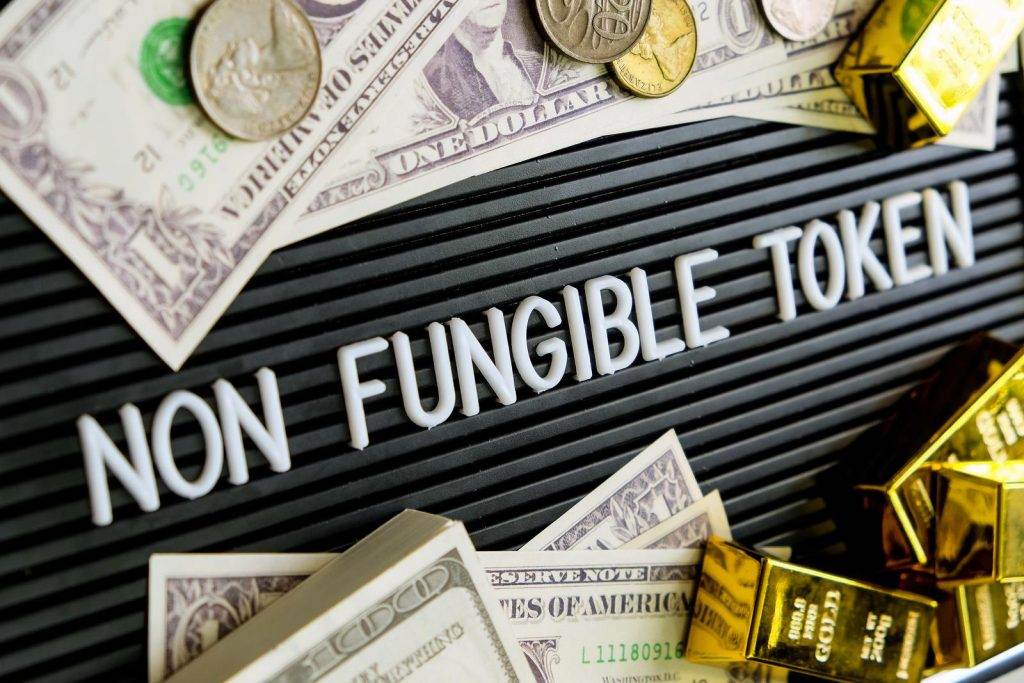Non-Fungible Tokens (NFT) are a relatively new digital identifier, with sales exceeding over $10.7 billion in just the third quarter of 2021 alone. Similar to other classifications of assets, some laws cover certain aspects of digital assets.

However, these laws aren’t sufficient enough to ensure the full scope of rights – NFT license agreements allow you to determine what rights a purchaser acquires and what rights NFT creators reserve for themselves.
With all the buzz and confusion around NFT these days, we need to dive deeper and analyze how this digital asset can be protected, why you need this license as an NFT purchaser, and what makes them so important to the creators.
What Is an NFT License Agreement?
It protects the intellectual property rights and financial interests of the original creator and purchaser of the NFT.
This agreement gives the original creator the opportunity to set out which rights buyers and sellers hold from purchased NFTs. It also pays a preset portion of subsequent resale amount to the original creators, which allows them to profit continuously from their work.
According to Statista, mostly consumers from China and Hong Kong are interested in NFTs, including 206 other different countries.
The scope of rights is coded within the respective blockchain technology of the NFT (also known as smart contracts). And the smart contract authenticates the NFTs and independently executes the license terms during all NFT resales.
Is It Important to Have an NFT License?
If you’re looking to create and sell your NFTs through your own patented marketplace, then you must license your NFTs first.
Like any other contract, it helps provide legal clarity to all parties involved. If you’re a novice digital artist looking to start your proprietary marketplace, then the public license will be sufficient enough. But for a more detailed project, custom-made licenses are needed before proceeding further.
The 7 Most Important Reasons You Need to Know about NFT License Agreements!
An NFT-specific license is regarded as the best solution available to resolve legal and financial conflict in the field.
However, it is still the creator’s responsibility to oversee their intellectual property, which also includes all legal aspects of the NFT. Here are the 7 main reasons why you should know about the contracts regarding NFTs –
NFT Art Can Be Monetized Easily
With the emergence of the new classification of digital assets, comes a highly personalized monetization process. The licensing of NFTs allows digital art to be sold as cryptocurrency or fiat, while the asset transfer is recorded in the blockchain.
Each NFT is linked to the creator’s digital or physical asset, which establishes NFT ownership rights. Nowadays, practically any digital object can be converted and sold as an NFT. Anyone can simply transfer, earn royalties or even trade NFTs to easily monetize them.
Consumers’ interests drive value for an NFT, as the rarity and base of interested investors can influence how much they are worth, similar to trading cards or even traditional arts.
Users Can Move Their NFTs to Any Marketplace or Digital Wallet That Uses Blockchain Technology
The fungibility (the ability of an asset to be interchanged with other assets of the same type) of cryptocurrencies allows them to be a secure transaction medium in the digital economy.
This is where NFTs and other cryptocurrencies differ, as each NFT is unique and cannot be equal or exchanged for another. However, with the help of blockchain technology, NFTs can now be purchased and even exchanged as in-game items in video games that use blockchain. This process applies to a myriad of marketplaces and economies that use similar blockchain technologies.
Earn Royalties on Resale
Once the digital asset has been sold, the original creator can easily earn passive lifelong royalties. However, these terms and conditions must be imposed on the contract and informed to the NFT purchaser before selling.
Contracts like these can empower artists, as royalties are a great choice for passive income. These licensing terms help artists bypass creative industry gatekeepers and independently market their work.
Alternative Dispute Resolutions
With any classification of an asset comes issues regarding copyrights and the distribution of rights of intellectual property. Licensing intellectual property can often create a rift between creators and buyers in terms of trust and unforeseen acts of foul play.
However, due to the complexity and technical characteristics of the legal issues regarding NFTs, disputes are only resolved by open-minded and creative people in a private space that allows flexibility for all parties involved.
Lawmakers handling NFTs must excel in a greater knowledge of blockchain technology and the ongoing social processes regarding matters of digital assets.
Right of Transfer
The seller of an NFT can transfer the intellectual rights of the asset as long as they own the property rights in the underlying asset.
With the help of an art licensing contract, the NFT is linked to an underlying asset in one of two ways: either the digital work of art is encoded in the NFT, or it contains a code that can be used to identify the digital copy of the artwork.
This specific code (also known as “hash”) is produced using a cryptographic mathematical function to a digital file to get an alpha-numeric string of numbers, which is used as a unique identifier of the original artwork.
Statutory Challenges
By learning more about the terms and conditions regarding NFTs, you can uncover the rules permitted by the contract. As a buyer, understanding the rights you acquire is just as important as a seller making all their terms as straightforward as possible.
Statutory challenges of buying and selling NFTs include copyrights, ownership, and intellectual property rights. All these regulations should be mentioned in the NFT contract.
Tax Implications
The tax treatment of cryptocurrencies has changed in recent years — in the United States, the IRS included NFTs in the discussion of digital assets during Revenue Ruling 2019-24.
As previously mentioned, NFTs are different from other cryptocurrencies, so the same taxation rules do not apply to NFTs. A taxable event is usually created if the buyer purchases NFTs using cryptocurrencies like Ethereum.
When a work is sold to a buyer, the purchase price is included with the premium paid and taxed to the seller. However, taxes are not due on the direct NFT, as the buyer may also have to pay at the point of purchase.
Key Takeaways
Non-fungible tokens have a crucial role as the world discovers how immutable ledgers can make transactions safer and faster in the long run.
And NFT license agreements allow flexibility for both the creator and the purchaser, as it works towards ensuring the safety of the artwork. This is why it’s essential to learn about all terms before investing in NFTs.

Lawyer Harrison Jordan can assist you with all your NFT Licence Agreement needs. Give him a call at 647 371 0032 or fill out the form to the right-hand side.


